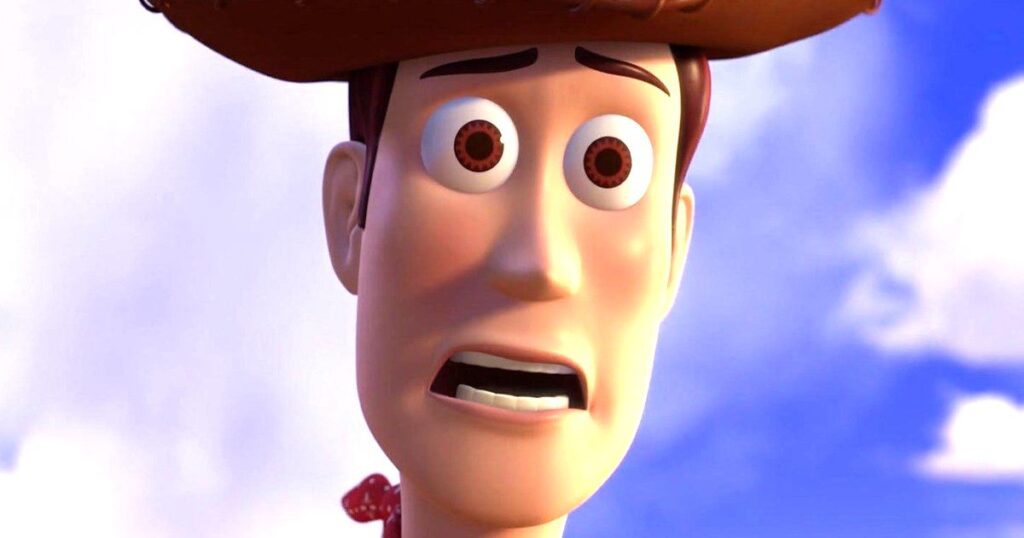Having reshaped animated cinema since its landmark debut with Toy Story in 1995, the iconic studio Pixar is now cautiously embracing a controversial new practice. This sentiment seems to be echoed by the company’s chief, Pete Docter.
Pete Docter’s Contrarian Stance
Pixar has undeniably revolutionized the animation film industry. While computer-generated imagery started appearing in Disney films in the early 1990s—seen in the ballroom scene of Beauty and the Beast (1991) and the wildebeests in The Lion King (1994)—it was Toy Story that marked a definitive shift as the first fully digital animated feature. This breakthrough forever altered the landscape of animated filmmaking.
Though DreamWorks has also ventured into this realm with hits like Shrek, Madagascar, and How to Train Your Dragon, Pixar remains the gold standard, consistently delivering universally acclaimed films recognized for their storytelling and innovative artistry. Notably, Pixar holds the record for the most Academy Awards for Best Animated Feature, with eleven Oscars since 2002.
The expectation that a studio so integral to the evolution of animation would continue to lead the charge is natural. However, Pixar’s commitment to innovation occasionally places it at odds with mainstream Hollywood ideas, as reflected in recent comments from director Pete Docter—who has helmed projects such as Wall-E, Up, Inside Out, and Soul. Speaking with the Hollywood Reporter, Docter shared his thoughts on the role of artificial intelligence in animation:
The technology behind Toy Story was a game-changer for many of my peers who were trained in traditional hand-drawn animation. Personally, I envisioned myself drawing Mickey Mouse at a desk, but here I am, using a mouse to manipulate a puppet digitally on-screen. This has become commonplace. AI is the latest technology pushing boundaries. […] The question we should be asking is: ‘Why do we generate images with AI?’ It’s to evoke feelings, to communicate our human experiences! AI can assist with that to some extent… I believe it’s a remarkable tool for those who understand how to use it to convey human experience. It will be transformative, but its true effectiveness and power lie in the hands of artists and storytellers. Based on my experience, AI takes an idea and smooths its edges, giving it a ‘mean’ form. This can be quite useful in many ways! But if you want to create something genuinely new and insightful from a personal perspective, AI won’t be fully capable. It only creates what it’s instructed to. It doesn’t generate anything new; it creates a strange amalgam of the provided elements.
Controversy Surrounding AI Usage in Hollywood
Docter perceives artificial intelligence as a “remarkable tool” that could enhance creativity when wielded by artists, whom he believes are essential to any cinematic production. While he does not assert that Pixar will incorporate AI in upcoming projects, it is clear that he is not opposed to its potential if it serves to support creativity. Nonetheless, his viewpoint is far from universally accepted in Hollywood, which has recently seen two major strikes that paralyzed numerous studios and continue to affect the industry today.
In many ways, Docter’s perspective aligns more closely with that of Toei Animation, which has recently expressed its intention to utilize artificial intelligence in the creation of storyboards and backgrounds to streamline budgets and expedite both pre- and post-production processes. What are your thoughts on this? We invite you to share your opinions.

Meet William, a proud Bethel University alumnus with a fervent passion for lifestyle and culture topics. His keen interest doesn’t stop there; he’s also deeply engrossed in current events of all kinds. William dedicates himself wholeheartedly to this site, thriving on the collaborative energy he shares with Suzanne, his long-standing partner in crime.
Having navigated their university courses side by side for years, their teamwork on the site is nothing short of dynamic. Together, they bring a unique blend of insights, proving that two heads are indeed better than one in delivering compelling content.













